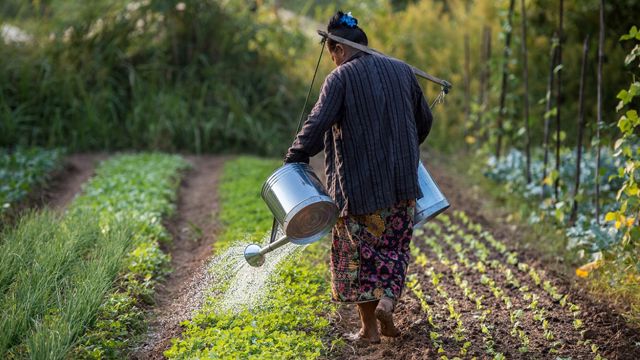Updated evaluation programme for 2023-2024

Updated evaluation programme for the coming years launched by Norad’s Department for Evaluation.
Climate, food security and humanitarian aid have been priority areas for the evaluation programme for several years, and will continue to be so in the future.
– Ukraine and the climate will be important in the years ahead, says Norad’s Evaluation Director, Helge Østtveiten. The risks here are high and a lot of money is involved, so conducting evaluations will be important in order to mitigate risk.
Another thematic priority area that will be continued is aid via UN and multilateral channels.
Evaluation of funds and funding agreements
– Given that more than half of our aid funds are distributed via the UN and multilateral channels, we have to ensure that our knowledge about how Norway can best administer these funds is good, says Østtveiten.
An evaluation is planned to take a closer look at funding streams, coordination and efficiency in the UN based on the experience gained from the 2019 funding agreement, the Funding Compact. The agreement was intended to ensure more predictable and flexible funding of the UN system and strengthen coordination between the efforts of the UN organisations and member states to achieve the Sustainable Development Goals. The evaluation will look more closely at the experience and results from implementing the agreement, including at a country level.
Interaction between humanitarian aid and long-term development cooperation
Of the ongoing projects that will be completed by the end of the year, two are major evaluations looking at the interaction between humanitarian aid and long-term development cooperation. One involves mapping and analysing peacebuilding work with a focus on the experience from DR Congo, Ethiopia and Lebanon, and the other is looking at Norwegian efforts in the Sahel and the experience gained from implementing the regional strategy.
– These evaluations may provide useful lessons concerning Norway’s engagement in vulnerable states and what Norway should do to make its efforts more coherent, says Østtveiten.
Good measures for getting results from aid
Helge Østtveiten started work as the new director of the Department for Evaluation in January this year, and this is his first evaluation programme. One project he has been eager to put in place quickly is how to acquire more systematic knowledge about the extent to which completed aid projects can document good results, and whether projects with good project attainment have any common traits.
– We are doing this because we really want to help Norad get even better at contributing to aid outcomes. We will be looking for those good things that Norad does to produce results. To do that, we have to examine whether projects produce good information about results, says Østtveiten.
As a prelude to this, the department has started reviewing documentation from Norad’s archives for all projects completed in 2022.
Making current knowledge available
Several of the incoming projects in this year’s updated programme are smaller studies intended to harvest knowledge from existing evaluations. This will help the department develop important, relevant knowledge in priority areas at pace. A synthesis study of the role of civil society organisations in locally led development has been specifically requested by the Ministry of Foreign Affairs. A study of managing corruption in aid administration is scheduled to start this autumn given that this is a high-risk area now that Norway is sending significant aid funds into Ukraine.
– The fact that Ukraine faces major challenges with regard to corruption in both public administration and civil society is well documented. It is, therefore, important to learn more about how aid administration can manage the risk of corruption in development aid work, concludes Østtveiten.
Save the date for the Department for Evaluation’s upcoming seminar on 19 June: “Aid for Ukraine – business as usual, or an invitation to rethink?”